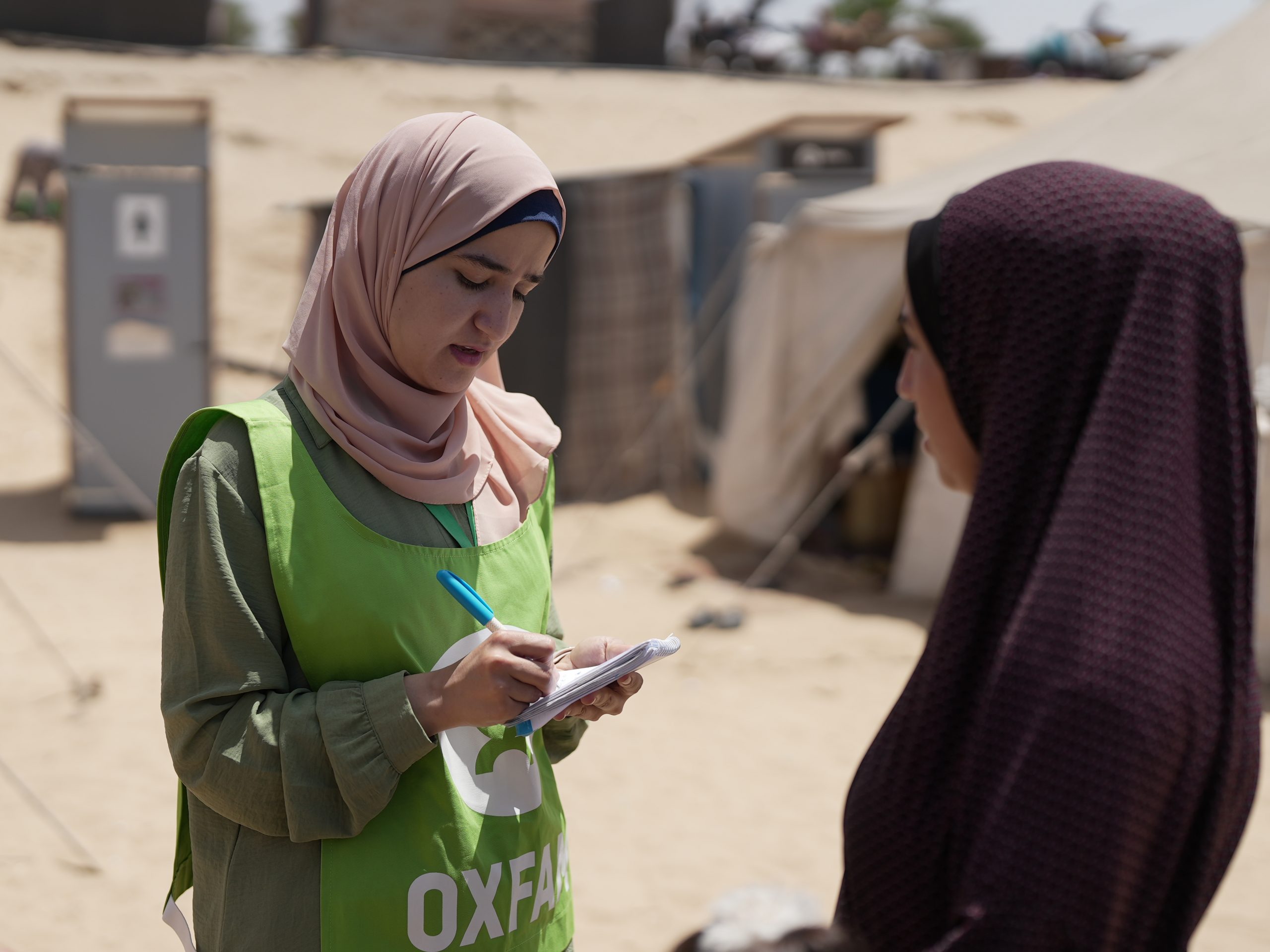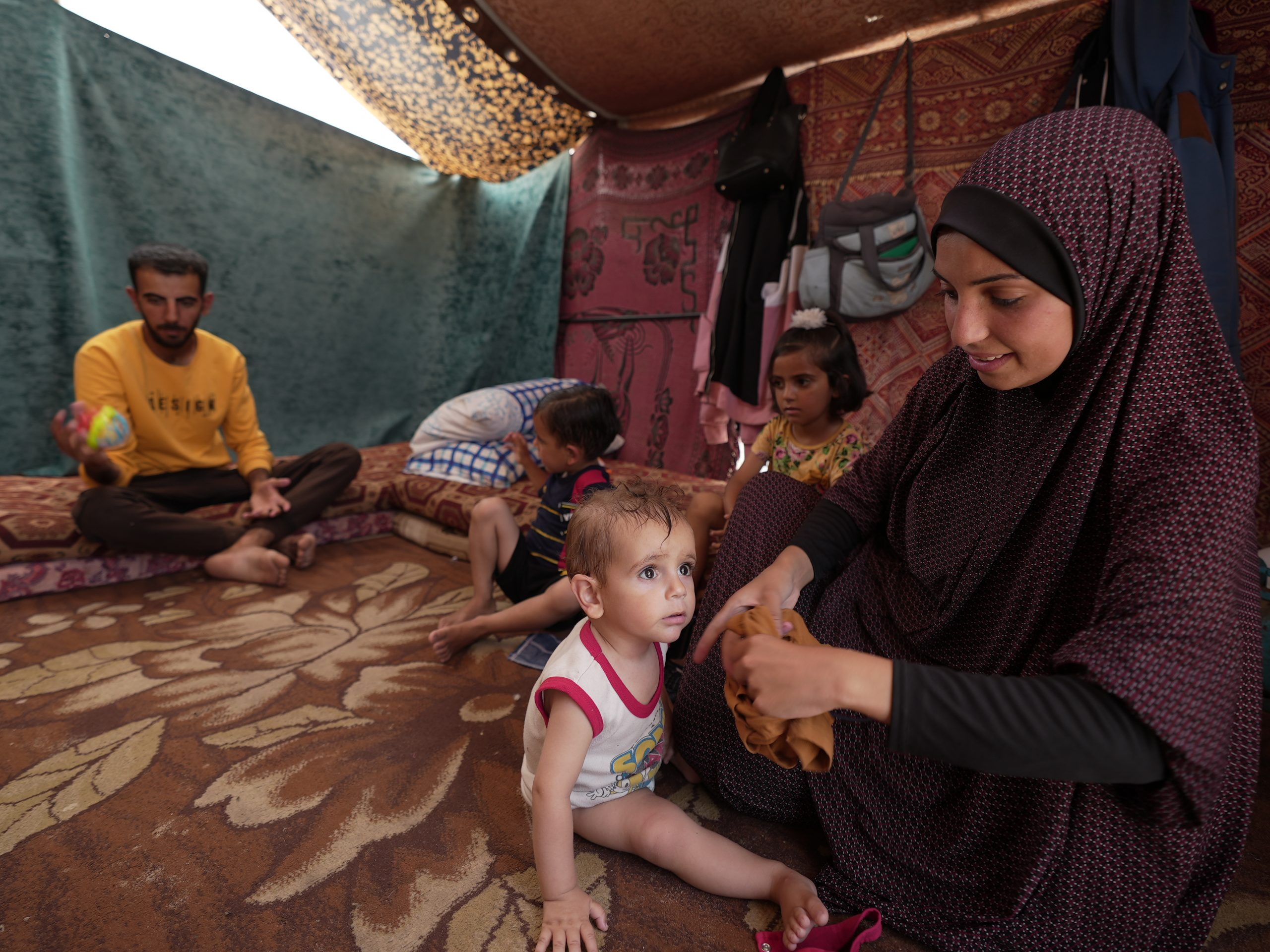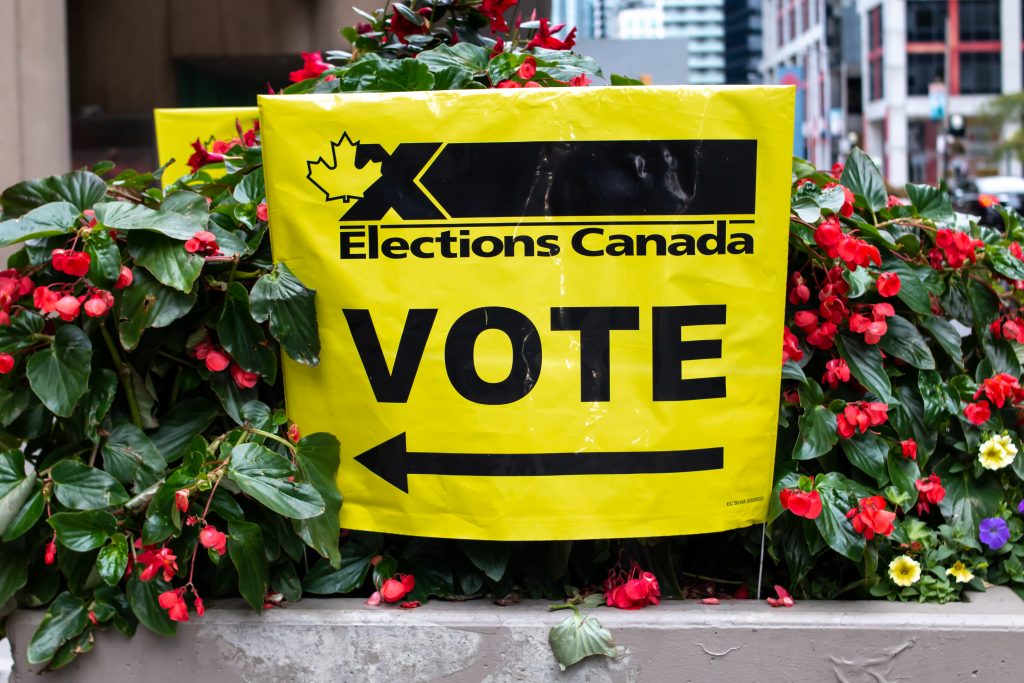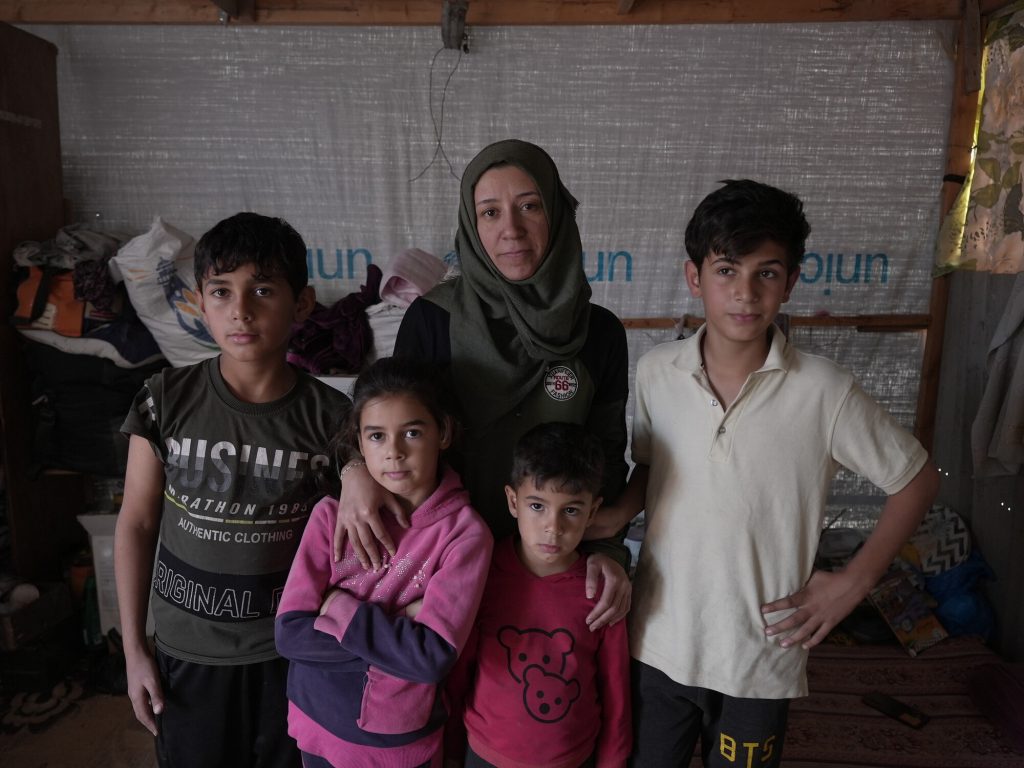Duaa’s Story: How Your Support Is Reaching Families in Gaza
In the shadow of a ceasefire that does not include Gaza, bakeries are shuttered, flour supplies are running out, and trucks remain barred from entering.
For Duaa and countless families in Gaza, starvation is imminent. Aid is obstructed and supplies are scarce. “The suffering is difficult to bear, the days are hard, and the magnitude of the tragedy is great. We wish to return to our home, even if it is damaged.”
In mid-October last year, Duaa, her husband, their baby, and two small children were forced to leave their home. Displaced several times, they eventually ended up in the so-called "safe zone" of Rafah. But here, safety is an illusion. The area is heavily targeted by Israeli military airstrikes, causing widespread destruction and deaths.
The family is physically and emotionally exhausted. The past 14 months have been tough. In their makeshift tent in Rafah, they endured unbearable heat during the summer. “I could not sit in the tent when the sun was there. It was like hell. I was afraid for my kids because of the intense heat,” she said.
But amidst the heat and hardship, since the beginning of the war, Oxfam’s efforts have brought some relief to families like Duaa’s. Yet, as winter sets in and the challenges grow, support is still desperately needed.
Improving Daily Life in Rafah with Clean Water and Hygiene
In collaboration with 20 partner organizations in Gaza, Oxfam has helped more than 1.1 million people with food and hygiene support since October 7th.
For Duaa’s family, accessing water was a constant struggle that overshadowed their daily life. Water sources were far from their tent, forcing her husband and neighbors to carry heavy bottles for miles in unbearable heat. “Oxfam provided us with very good water tanks. It saved us so much effort. When I need water, I find it nearby. If my husband is not with me or I am busy, I send my daughter to fetch it,” Duaa explains with gratitude.
Oxfam also installed private bathrooms close to the tents, sparing the family from long walks and the need to wait in line. "Before, the public bathrooms were far from our tent, shared by both men and women, and I was too scared to use them, especially at night. Walking in the dark was terrifying. I used to wake my husband to go with me because I was so afraid,” she said.
Five solar-powered desalination units installed by Oxfam and local partner Palestinian Environmental Friends (PEF) across Rafah, Al-Mawasi, and Khan Younis provide three liters of clean drinking water per person daily, reaching over 48,000 people.
Having now clean water reassures Duaa and eases her anxiety. “The hygiene situation here was terrible, causing so many diseases. Before Oxfam’s support, we had no proper facilities to wash ourselves or our hands. My daughter got hepatitis, and I was constantly afraid she would pass it to someone else,” she shares.
Alongside water and sanitation improvements, Oxfam has distributed cash to nearly 20,000 people, allowing families like Duaa’s to buy food, water, medicine, and hygiene items based on their needs.
The Harsh Reality of the Here and Now
Now, as winter approaches and aid trickles sparsely into Gaza, families like Duaa’s are living in the most life-threatening conditions yet. Dampness and cold seep through the thin tent fabric, with no blankets or heating to provide warmth. Famine is imminent in northern Gaza, where 133,000 people face catastrophic hunger—a number that could triple in the coming months.


Since October 2023, Oxfam and its partners have reached 376,842 households, helping over 1.1 million people across the Gaza Strip. In September and October 2024 alone, they supported 91,039 households, benefiting around 320,000 individuals. “When the children saw the food parcel, they were happy—things they had not seen for months,” Duaa recalls of the days when food deliveries could still reach Rafah. Since early October 2024, aid restrictions have worsened drastically, with only 37 trucks entering Gaza daily, compared to 500 before the conflict. The closure of the Rafah crossing, a ban on commercial trucks, and destroyed infrastructure have crippled food supply. People in Rafah often go days without food.
Fighting back tears, Duaa says, “My biggest concern is losing a child because there is no food. I look at photos of my daughters before the war. Their smiles and weight are completely different.”
Prices for essentials have skyrocketed; items like diapers are now 620 percent more expensive. “Everything is nothing, nothing, nothing. Fruit and vegetables have disappeared. They’re not available, or we cannot afford them because of high prices.”
Help End Famine and Stop Arms Exports to Israel
Famine is used as a weapon of war in Gaza. Despite severe restrictions, Oxfam’s staff and partners find ways to deliver lifesaving food, clean water, and hygiene supplies to those in desperate need.
Your donation can make a difference, ensuring families like Duaa’s receive essential aid to survive. Donations also support Oxfam’s advocacy for peace and justice.
Canada continued military support raises serious ethical concerns, risking contributions to war crimes and devastating impacts on women and children. Join us in urging Canada to stop arms exports to Israel and push for a ceasefire in Gaza.


